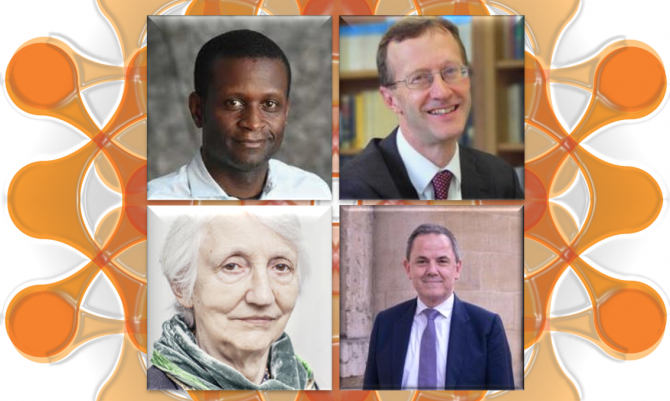
Watch the recording on YouTube from here
The Institute for Ethics in AI will bring together world-leading philosophers and other experts in the humanities with the technical developers and users of AI in academia, business and government. The ethics and governance of AI is an exceptionally vibrant area of research at Oxford and the Institute is an opportunity to take a bold leap forward from this platform.
Every day brings more examples of the ethical challenges posed by AI; from face recognition to voter profiling, brain machine interfaces to weaponised drones, and the ongoing discourse about how AI will impact employment on a global scale. This is urgent and important work that we intend to promote internationally as well as embedding in our own research and teaching here at Oxford.

Jamal Greene is a constitutional law expert whose scholarship focuses on the structure of legal and constitutional argument. He teaches constitutional law, comparative constitutional law, the law of the political process, First Amendment, and federal courts.
Professor Jamal Greene is the author of the book, How Rights Went Wrong: Why Our Obsession with Rights is Tearing America Apart (HMH, March 2021). He is also the author of numerous law review articles and has written in-depth about the Supreme Court, constitutional rights adjudication, and the constitutional theory of originalism, including “Rights as Trumps?” (Harvard Law Review foreword for the 2017–2018 Supreme Court term), “Rule Originalism” (Columbia Law Review, 2016), and “The Anticanon” (Harvard Law Review, 2011), an examination of Supreme Court cases now considered examples of weak constitutional analysis, such as Dred Scott v. Sandford and Plessy v. Ferguson.

Professor Timothy Endicott works on the doctrine and the theory of United Kingdom constitutional and administrative law. He has written about the constitutional law of India, Canada, and the United States, and about human rights law. Professor Endicott also works in general jurisprudence, with particular interests in legal interpretation and in the relation between adjudication and the law. His publications include "The Vagueness of Law" (OUP 2000), and Administrative Law (OUP 2018).

Baroness Onora O’Neill combines work in political philosophy and ethics with public activities. She was Principal of Newnham College, Cambridge from 1992-2006, and has been a crossbench member of the House of Lords since 2000. She has served as President of the British Academy, chaired the Nuffield Foundation and the Equality and Human Rights Commission, and has served on the Medical Research Council and the Banking Standards Board. She publishes on justice and ethics, accountability and trust, human rights and borders, the future of universities and the ethics of communication.

Chaired by John Tasioulas, the inaugural Director for the Institute for Ethics and AI, and Professor of Ethics and Legal Philosophy, Faculty of Philosophy, University of Oxford. He was previously the inaugural Chair of Politics, Philosophy & Law and Director of the Yeoh Tiong Lay Centre for Politics, Philosophy & Law at The Dickson Poon School of Law, Kings College London. Professor Tasioulas has degrees in Law and Philosophy from the University of Melbourne, and a D.Phil in Philosophy from the University of Oxford, where he studied as a Rhodes Scholar. He was previously a Lecturer in Jurisprudence at the University of Glasgow, Reader in Moral and Legal Philosophy at the University of Oxford, where he taught from 1998-2010, and Quain Professor of Jurisprudence at University College London. He has also acted as a consultant on human rights for the World Bank and is a member of the International Advisory Board of the European Parliament's Panel for the Future of Science and Technology (STOA). He has published widely in moral, legal, and political philosophy.
